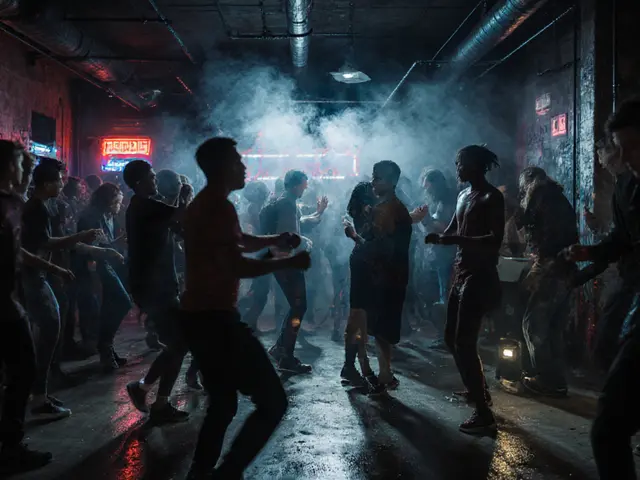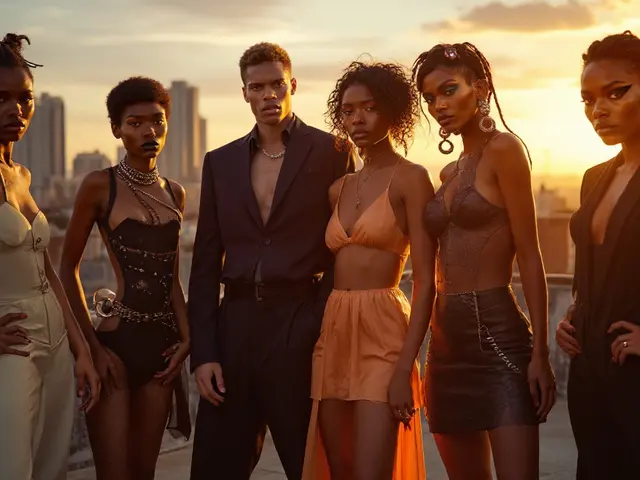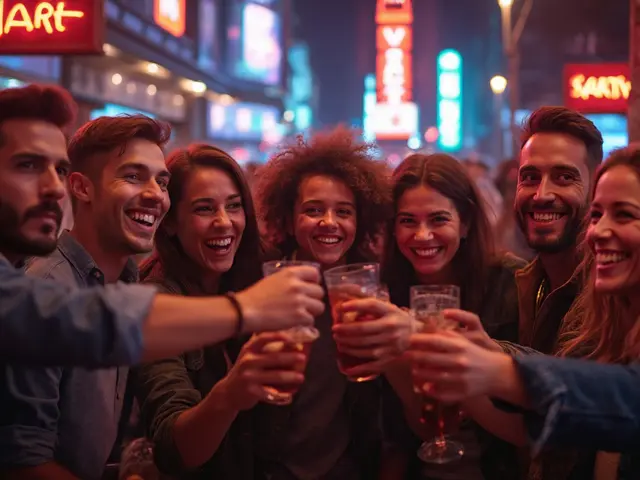Key Points About Top Models and Their Iconic Status
- Top models aren't just faces—they set cultural and style trends for entire generations.
- Becoming iconic in modeling means moving beyond photoshoots and runways; it's about changing the way we see beauty and fashion.
- Models like Naomi Campbell, Kate Moss, and Gisele Bündchen have influenced everything from hairstyles to social causes.
- Being a fashion icon comes with hard work, unique charm, and knowing how to create buzz in an ever-changing industry.
- Knowing what sets these models apart gives insight into the fashion world and what inspires today’s trends.
Direct Answer: What Makes a Model an Icon?
An iconic model is more than just a pretty face in magazines—they are trendsetters and rule-breakers who shape style, spark conversations, and inspire generations. They don’t just wear clothes; they embody them. They grab the world’s attention, whether they’re strutting down Paris runways or using their platforms for activism. It’s their mix of talent, charisma, and daring moves that set them apart from the crowd. So, if you want to spot a true model icon, look for someone whose name lives on long after the campaign ends.
Why Top Models Are Icons: Fame, Impact, and Fashion’s Frontlines
Picture this: it’s Milan Fashion Week. Photographers battle for the best shot, fans press against velvet ropes, and someone like Gisele Bündchen glides past—suddenly, even the weather is irrelevant. There’s a reason top models get treated like rock stars. They’re more than just mannequins; they become the faces of eras, setting the agenda for beauty, style, and even social consciousness.
Naomi Campbell didn’t just walk runways—she shattered racial barriers in fashion and championed causes far outside the industry. Kate Moss took grunge from underground subculture to mainstream obsession and redefined "cool" with her signature androgynous look. Cindy Crawford, with that famous mole, became America’s girl-next-door and an early pioneer in turning the supermodel brand into a business empire. If you ever wanted to see how fashion and pop culture twist together, look at how models like them made style statements that stuck around for decades.
Numbers don’t lie either. According to Forbes, Gisele Bündchen earned about $400 million in her career—proving star models can be as financially powerful as tech moguls. And the influence runs deeper: after Bella Hadid wore those painted-on jeans at Paris Fashion Week in 2022, Google searches for ‘body paint jeans’ skyrocketed 282% within a week. It’s the same story every time an iconic model debuts a new look; the world takes notice, and trends ripple out from there.
Ever wondered why so many global brands pick a single face for their campaigns? It’s simple—people listen to someone like Adut Akech, who not only sells a jacket but also stands up for refugees and youth empowerment. That’s what transforms a working model into an icon: they turn every photoshoot into a headline, every social post into a conversation. These are the people who outshine the outfits and end up influencing how we dress, think, and even see ourselves.
Top Models: Definition, Context, and Their Place in Culture
So what does "top model" really mean these days? Once upon a time, the title belonged to runway regulars and magazine cover stars. Today, the role has exploded. Models still walk for designers, but their reach stretches from TikTok feeds to philanthropic causes. Think of a top model as a living brand—a force that goes wherever culture is heading next.
Supermodels first broke out big in the late '80s and '90s. Linda Evangelista famously said,
"We don’t wake up for less than $10,000 a day."That line wasn’t arrogance—it captured how serious the business had become. Fashion powerhouses realized that a recognizable face made the product fly off shelves. The Vogue covers, perfume launches, and Milan shows were just the start. These models began launching their own businesses, acting in movies, and shaping online trends long before "influencer" was even a word.
Of course, this spotlight comes with pressure too. The average career for a model used to be short—three to five years if you were lucky. But top icons rewrite that rule. Adriana Lima spent 18 years as a Victoria’s Secret Angel, while Tyra Banks built a TV and fashion empire that’s still thriving. Now, models stick around through thick and thin, adapting to tech, body-positivity movements, and even ageism. They’ve outgrown the idea that modeling is a young person’s game—just look at Maye Musk, who landed a CoverGirl gig at age 69.
What’s kept top models relevant through all the change? Adaptability and authenticity, no question. Fans connect with real stories more than ever. When Ashley Graham posted a stretch-mark selfie, it rewrote people’s ideas about beauty. When Halima Aden became the first model to wear a hijab and burkini in Sports Illustrated, she created space for a new generation of fashion lovers. Modeling used to be about fitting a mold—now it’s about smashing them.
The Perks and Pitfalls: Why Be a Top Model?
Earning the "top model" badge is tempting—glamorous shoots, world travel, and all the free clothes you can wear. But being an icon means a lot more than posing on glossy pages, and it’s definitely not always sparkling champagne and after-parties. For every dazzling red carpet moment, there’s a tough, unscripted side to the business.
Ask any working icon what really sets this life apart and you’ll hear about discipline, resilience, and building a personal brand from scratch. Think about Karlie Kloss, who learned to code and started a scholarship for girls in STEM—balancing her fashion gigs with real-world impact. Or Liu Wen, who changed standards for Asian representation by becoming the first East Asian model to walk the Victoria’s Secret runway. The perks? Huge paychecks (as the top models list in Forbes confirms), travel to exotic locations, and opportunities to make real change.
But top models also deal with wild schedules, endless competition, and relentless pressure to stay relevant online. You see stories of jetting from New York to Paris in less than 24 hours, pulls for dawn-to-dusk photoshoots, and the war to balance privacy with public demand. There’s mental health strain as well; Vogue reported that nearly 54% of models have experienced anxiety or burnout due to constant scrutiny and harsh standards.
Still, the bright side is bigger than ever. Modern icons use their status to fight for more diversity and acceptance in fashion. Paloma Elsesser, for example, champions size inclusivity and has changed how brands pick their campaigns. Their social media reach lets them speak out on issues that matter—turning followers into activist communities. For many, the real reward is knowing they’ve opened doors for the next generation, making the runway a bit wider and more welcoming.
Breaking Down Types and Trends: The Model World in 2025
Imagine walking into a fashion casting in Munich, Paris, or New York this year. You’ll see models of all shapes, sizes, and backgrounds—and each type brings something new to the runway. The classic image of tall, slender catwalk models still exists, but now you’ll bump into curve models, petite models, and even digital avatars. The definition of "top model" has never been more diverse.
Runway models still hold the crown when it comes to high drama and breaking trends. These are the faces opening Prada shows or closing Chanel. Then you have commercial models, who bring the charm to TV and e-commerce ads—think Karlie Kloss working with Swarovski or Joan Smalls starring in Estée Lauder campaigns. Editorial models, like Anok Yai, grace magazine covers and work with visionary photographers, their looks telling a story as striking as any designer outfit.
But 2025’s industry is much more than old-school categories. Social media models, sometimes called "influencer models," use Instagram as their portfolio. Brands like Savage X Fenty have cast viral digital stars uncovered on TikTok, not just at agency castings. And virtual models, made entirely by software, land real jobs—Miquela Sousa (aka Lil Miquela) boasts millions of followers and campaigns for global brands, even though she’s not human at all.
If you want the numbers, check this out:
| Model Type | 2025 Global Market Share (%) | Most Popular Regions |
|---|---|---|
| Runway Models | 28 | Europe, USA, Japan |
| Commercial Models | 31 | North America, Asia |
| Editorial Models | 24 | Europe, Australia |
| Social Media/Influencer Models | 14 | Global |
| Virtual Models | 3 | Europe, USA |
It’s wild to see this much variety in an industry that once had one strict look. In fact, the biggest trend for 2025 is inclusivity—it’s not an add-on, it’s a must. Brands and magazines compete to find the next breakout star from underrepresented communities, and the idea of “the right look” is out the window. That’s the future for top models: a field where anyone, anywhere can become iconic.
Want a tip? If you’re thinking of getting into modeling, or even just updating your look, don’t worry about conforming. Unique stories, real personalities, and bold online presence are what set the new icons apart—this year and beyond.



